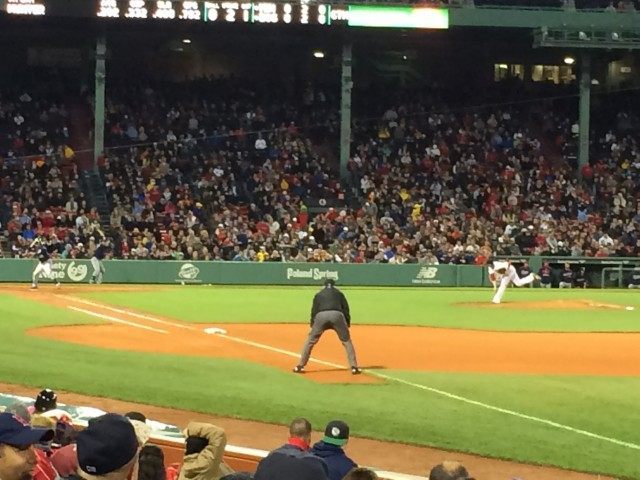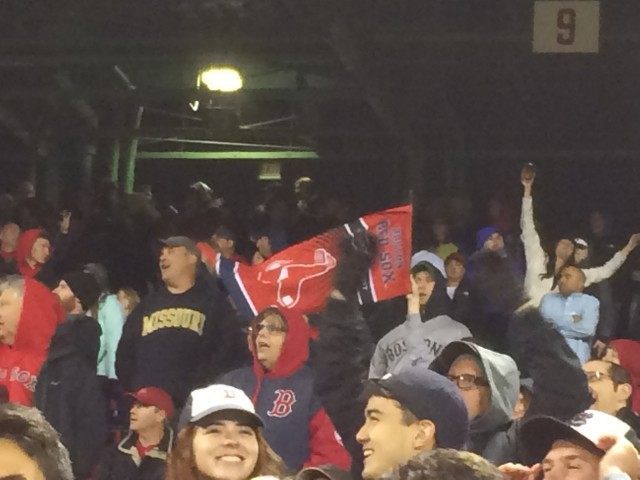BOSTON—Boston bats gave Clay Buchholz one run Tuesday night. He did the rest with his arm.
A Dustin Pedroia leadoff single in the sixth followed by a Mookie Betts base hit presented the most promising opportunity of the game for the Bo Sox. But slumping David Ortiz hit into a double-play and Hanley Ramirez lined out to left to end the sixth still scoreless.
With two outs in the seventh, Red Sox shortstop Xander Bogaerts doubled off the wall. Sandy Leon drew a walk. Cuban call-up Rusney Castillo drilled a single up the middle to score Bogaerts. The Twins tagged Leon out at third to end the inning.
Castillo continued his heroics moments later. With Fred Lynn looking on, the outfielder turned an Aaron Hicks home run into an out by effortlessly sticking his glove above the short bullpen wall in right field.
That 380-foot shot represented the best hope for the Twins, who enjoyed a solid performance from Mike Pelfrey over seven innings but just couldn’t put anything together offensively.
Clay Buchholz struck out eight over eight innings. The righty allowed three hits, one on a questionable scorer’s call on what looked like a Dustin Pedroia error, and two walks. He pitched, with bullpen help, his first shutout since April 6th’s 8-0 victory over Philadelphia.
Koji Uehara closed out the ninth via a Torii Hunter ground out, a Joe Mauer strikeout, and, after a Trevor Plouffe walk, a Kurt Suzuki fly out.
The Sox snapped a three-game losing streak with the win. The Twins remain a half-game ahead of the Twins despite the defeat. Buchholz improves to 3-6. Pelfrey drops to 4-2.
The one-run game lasted a whole two hours, 21 minutes, helping to continue 2015’s trend of shorter games. A timer generally forces a new half-inning to begin 2:25 seconds after the end of the last one. Batters also can no longer step from the batter’s box on whim. Such rule changes have lopped off nearly ten minutes from last season’s 3:02 average length of game.
The 1-0 score also exemplifies another, longer-term trend. MLB teams average 4.16 runs per game this season. Although up slightly from last season, the 8.32 total runs per game represent the lowest number, aside from last season, since 1989 and a severe drop since the steroid-era peak of 10.28 runs per game.
Whether fans value shorter games more than power at the plate, or vice versa, may help set in motion another trend. Fenway Park reported an attendance of 32,622, just 86 percent of capacity in a park that sold out for a decade straight, on Tuesday night despite a Mike Napoli bearded bobblehead giveaway. The actual attendance, with near-record cold and an occasional slight drizzle, surely dipped well below that.
Shorter games certainly move baseball in a more fan-friendly direction. But what generally makes for a shorter game, anemic offensive output, generally moves the game in a less fan-friendly direction.
The solution to baseball’s boredom problem may also pose a very different boredom problem.


COMMENTS
Please let us know if you're having issues with commenting.